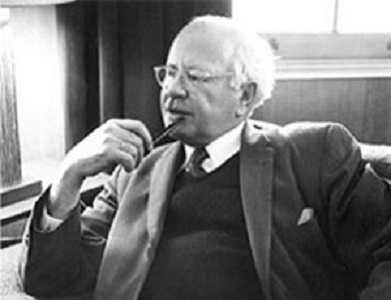| Digital List Price: | $19.99 |
| Kindle Price: | $2.99 Save $17.00 (85%) |
| Sold by: | Amazon.com Services LLC |
Your Memberships & Subscriptions

Download the free Kindle app and start reading Kindle books instantly on your smartphone, tablet, or computer - no Kindle device required.
Read instantly on your browser with Kindle for Web.
Using your mobile phone camera - scan the code below and download the Kindle app.

OK
 Audible sample Sample
Audible sample Sample 


Gandhi: A Memoir Kindle Edition
As a young foreign correspondent, William Shirer reported briefly on Gandhi—but the year was 1931, when India's struggle for independence peaked and Gandhi scored perhaps his greatest political success. The year before, he had led a 200-mile march to the sea to pick up a lump of salt—a violation of the British salt tax; and this symbolic act (like—he reminds Shirer—the Boston Tea Party) had propelled the Indian masses into nonviolent civil disobedience on a large scale. To check its spread, Gandhi had been arbitrarily imprisoned. Now he was out of prison and negotiating with the British viceroy: if Gandhi would call off the civil-disobedience campaign and attend an upcoming London conference, the British would make concessions too.
These, however, were so limited and vague that many Indian nationalists regarded Gandhi's agreement as a sell-out; but Shirer underlines history's judgment of its wisdom with Gandhi's own words. More importantly, he notes, the British had finally been forced "to deal with an Indian leader as an equal." Along these lines, Shirer also witnessed British discomfiture at Gandhi's arrival—complete with loin cloth, spinning wheel, and goat’s milk; he saw the sensation Gandhi caused in London—and heard him address Lancashire millhands thrown out of work by the Indian boycott of British cotton. And he saw him at home, subsisting on four-hours' sleep and "frenzied acclaim." This book is sure to press upon readers the worldwide force of Gandhi's example.
—Kirkus Reviews
- LanguageEnglish
- PublisherSimon & Schuster
- Publication dateAugust 21, 2012
- File size24420 KB
Customers who bought this item also bought
Editorial Reviews
Review
"As a young foreign correspondent, Shirer reported briefly on Gandhi--but the year was 1931, when India's struggle for independence peaked and Gandhi scored perhaps his greatest political success...[Gandhi: A Memoir] recaptures the novelty of his approach and the magnitude of his appeal...Shirer also witnessed British discomfiture at Gandhi's arrival--complete with loin cloth, spinning wheel, and goat's milk...and heard him address Lancashire mill hands thrown out of work by the Indian boycott of British cotton. And he saw him at home, subsisting on four-hours' sleep and 'frenzied acclaim'...[Will] impress upon latecomers the worldwide force of Gandhi's example."
-- "Kirkus Reviews"From the Publisher
About the Author
Product details
- ASIN : B008GUFCAE
- Publisher : Simon & Schuster (August 21, 2012)
- Publication date : August 21, 2012
- Language : English
- File size : 24420 KB
- Text-to-Speech : Enabled
- Screen Reader : Supported
- Enhanced typesetting : Enabled
- X-Ray : Not Enabled
- Word Wise : Enabled
- Sticky notes : On Kindle Scribe
- Print length : 361 pages
- Best Sellers Rank: #448,641 in Kindle Store (See Top 100 in Kindle Store)
- #33 in Gandhi
- #643 in Cultural & Regional Biographies (Kindle Store)
- #773 in Journalist Biographies
- Customer Reviews:
About the author

William Lawrence Shirer (February 23, 1904 – December 28, 1993) was an American journalist and war correspondent. He wrote The Rise and Fall of the Third Reich, a history of Nazi Germany that has been read by many and cited in scholarly works for more than 50 years. Originally a foreign correspondent for the Chicago Tribune and the International News Service, Shirer was the first reporter hired by Edward R. Murrow for what would become a CBS radio team of journalists known as "Murrow's Boys." He became known for his broadcasts from Berlin, from the rise of the Nazi dictatorship through the first year of World War II (1940). With Murrow, he organized the first broadcast world news roundup, a format still followed by news broadcasts.
Shirer wrote more than a dozen books beside The Rise and Fall of the Third Reich, including Berlin Diary (published in 1941); The Collapse of the Third Republic (1969), which drew on his experience living and working in France from 1925 to 1933; and a three-volume autobiography, Twentieth Century Journey (1976 to 1990). His brother was an analyst for the Securities and Exchange Commission and his niece, Jean Ingold, was an employee of the Bureau of Labor Statistics.
Bio from Wikipedia, the free Encyclopedia. Photo by US State Department [Public domain], via Wikimedia Commons.
Customer reviews
Customer Reviews, including Product Star Ratings help customers to learn more about the product and decide whether it is the right product for them.
To calculate the overall star rating and percentage breakdown by star, we don’t use a simple average. Instead, our system considers things like how recent a review is and if the reviewer bought the item on Amazon. It also analyzed reviews to verify trustworthiness.
Learn more how customers reviews work on AmazonReviews with images
-
Top reviews
Top reviews from the United States
There was a problem filtering reviews right now. Please try again later.
Dr Gunta Krumins-Caldwell author of On Silver Wings














